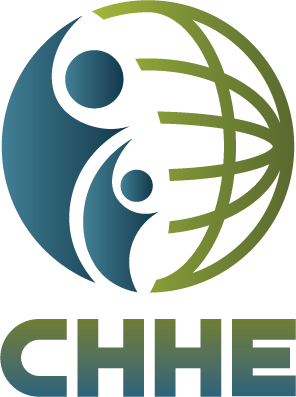Annual CHHE Symposium
Each year we bring center members and colleagues together for one day to highlight CHHE research on a given scientific theme.
Environmental Exposures and Carcinogenesis Risk: From Mechanisms to Population Science
The 9th Annual CHHE Symposium will explore the impacts of environmental exposures on cancer risk, covering topics like breast carcinogen identification, PFAS health disparities, genomic instability, immune cell function in liver disease, and air pollution’s role in cancer. Presentations will highlight research bridging environmental health, precision medicine, and community-focused cancer care.
It is open to anyone who would like to attend. CHHE members, their collaborators, students, and postdocs are encouraged to attend, and all attendees are invited to present a poster on any aspect of their current research (Environmental Exposures and Carcinogenesis Risk theme is not necessary for posters).
Please join us on March 6th, 2025 starting at 8:30am in the Talley Student Union’s Piedmont Mountains Ballroom at NC State. Please see the agenda and registration links below.
Perinatal Environmental Exposures and Later Life Disease: Biological Targets and Mechanisms
The 8th Annual Symposium explored perinatal environmental exposures on later life disease, covering model systems, mechanisms, epidemiology, nutrition, and socio-environmental stressors. The symposium featured guest speakers at the forefront of the field and showcased the breadth of fetal and perinatal origins of disease research within the CHHE.
Sex Differences in Response to Environmental Exposures
The 7th. Annual Symposium featured research presentations by guest speakers and CHHE members in the area of Sex Differences in Response to Environmental Exposure.
Climate Change and Health
The 6th annual CHHE symposium on Climate Change and Health, was held on February 24th, 2022. The symposium will explore issues related to climate change and human health including risk-based decision making in at-risk communities, impacts of climate change on air and water quality, and resiliency planning to mitigate the impacts of climate change on human health and the environment.
The symposium will be a virtual event.
Celebrating the CHHE
The 5th annual CHHE symposium was presented in four individual parts virtually, over the course of the Spring 2021 semester due to COVID-19 precautions. The symposium celebrated the enabling aspects of the CHHE on research, communities and interdisciplinary collaborations.
Speakers/Events
- 1/15/21: Rick Woychik (NIEHS) – Vision for NIEHS and Environmental Health Science
- 2/26/21: Community Engagement During COVID-19
- 4/16/21: Celebrating Success in Environmental Epigenetics and Genetics
- 5/14/21: GenX: Research to Respond to Community Needs
Interactions Between the Brain and the Environment
The 4th annual CHHE symposium was held on February 20, 2020. The symposium explored the importance of environmental exposures on the brain, behavior, and neurodevelopmental outcomes. Guest speakers included: Mamta Behl (NTP), Tim Shafer (EPA), Caroline Smith (Duke) and Janice Juraska (University of Illinois).
Exploring PFAS in North Carolina: Impacts on the Environment and Human Health
The 3rd annual CHHE symposium was held on February 14, 2019. The symposium featured research presentations by guest speakers and CHHE members in the area of PFAS, emerging contaminants, and human health. Guest speakers included Sharon Lerner (The Intercept), Veronica Vieira (UC Irvine) and Mike Abraczinskas (NC DEQ).
Epigenetics, Environment and Human Health
The 2nd annual CHHE symposium was held February 8, 2018. The symposium explored the importance of epigenetics in linking environmental exposures to human health and disease, covering the spectrum from fundamental biological mechanisms to novel therapeutic approaches. Guest speakers included Moshe Szyf from McGill University and Ben Philpot from UNC Chapel Hill.
Toxic Metals – From Exposures and Model Systems to Human Populations
The 1st annual CHHE symposium was held February 16, 2017. NIEHS Director Dr. Linda Birnbaum kicked off the event with a talk highlighting the importance of toxic metal exposure science and recent NIEHS-funded discoveries in the field. Lorisa Seibel, Director of Housing Programs for Reinvestment partners in Durham, NC, gave a talk on the prevention of lead exposure in Durham’s communities. Dr. Michael Waalkes, former Chief of the NCI/NIEHS’s Inorganic Carcinogenesis Section and a pioneer in the field of metal toxicology and carcinogenesis, delivered the keynote address highlighting his seminal discoveries in metals and carcinogenesis over his 33-year career in public service.
